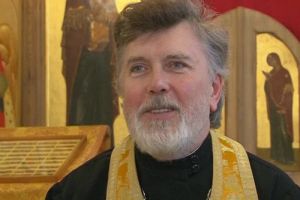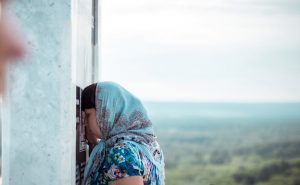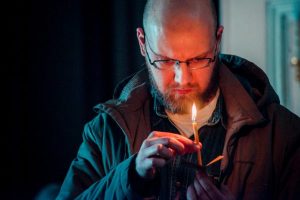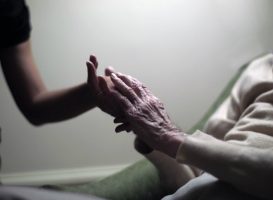There has been an examination, and a verdict has been reached. There is a diagnosis, but it is terminal. How should one go on living? And why? Archpriest Valentin Ulyakhin replies.
This question concerns me directly. The fact is that six years ago I was diagnosed with carcinoma of the prostate, that is, with prostate cancer. I had to undergo treatment: radiotherapy, irradiation, and even the implantation of radioactive isotopes. That was one thing, back in 2005. But this turned out not to be enough. The Lord allowed more: a year later I suffered a heart attack, and I had to undergo a heart bypass. After that I lost the motor, as it were, that had been designed especially for me, and received a motor of much smaller capacity. Nonetheless, I am still alive and consider that this was very, very meaningful for me.When I heard that I had cancer, prostate cancer, I could not believe my ears. I was offered three treatment options, but I could not take it all in. While waiting for my operation, over the course of two or three weeks, I lost twenty to thirty pounds because I could not get rid of my obsessive thoughts: Why? Who is to blame? Why has the Lord allowed such a trial?
After my operation, I tried not to think about it. A year later, when I had to have a bypass, my blood pressure began to fluctuate from 200 to 60. [1] When my blood pressure fell I often collapsed, even during services – which sometimes happens even now. I tried not to think about it. I just ignored it.
Life reigns. [2] If you entrust yourself to God, then the Lord Himself will guide and lead you along the path of life. The Lord Himself knows at which time and hour we are to pass the threshold of Eternity; the Lord Himself leads us into a way of life that corresponds to our illness.
If we accept this as we should, we will not despair, we will not focus our attention on, or obsess over, our wounds. If we think less about it, we will likely find greater consolation.
If we think constantly about our illness, about how to live, about how to get treatment, about what means and medicines we should use, this will only exacerbate our condition and we won’t last long. Here we simply need to trust in God.
In the seventies and eighties I met disabled veterans of the Second World War who, lacking hands and legs, were optimists. Despite their terrible wounds and injuries, they thought about happiness and life. The Lord was evidently preparing them by these means for the Heavenly Kingdom. This is because everything that the Lord allows us is for our soul and spirit to be perfected to the measure of Christ. This is a participation in Christ’s sufferings. One needs to give thanks to the Lord for everything!
I knew a nun, born in 1914, who sang in a village church I visited in the seventies and eighties. Her name was Olga Avdeyevna, in the schema Alexia. She was a very large person and could not sing without an inhaler – she had asthma and tuberculosis and her internal organs suffered. But she never despaired; she was always cheerful. And she lived to the age of ninety-seven.
I knew another priest, a disabled veteran, who served in the Church of the Protection not far from the New-Jerusalem Monastery of the Resurrection. [3] He had shrapnel in his spine, but never despaired. He lived past the age of eighty. After the War, after admission to seminary, he was several times on the verge of death, literally dying. Nevertheless, he survived and went on to serve forty-five years after graduating from seminary, serving beautifully.
I likewise knew another priest who lived to the age of ninety-five, who was exiled with his family back in the thirties. He went hungry, going without bread for ten or more days. He was still a boy, living in hunger and cold for ten to fifteen years, but managed to endure it all, without despairing, remaining a man and an optimist. He died in 2005 at the age of ninety-five.
There are many such cases. Let us turn more often to the experience of our ancestors, forefathers, and acquaintances, and we will find fertile material for helping us to keep afloat without giving up.
Translated from the Russian.
Translator’s notes:
[1] That is, from severely high to abnormally low.
[2] “Zhizn’ zhitel’stvuet.” An expression taken from St. John Chrysostom’s Paschal homily, now become proverbial.
[3] Located in the town of Istra, not far from Moscow.

















